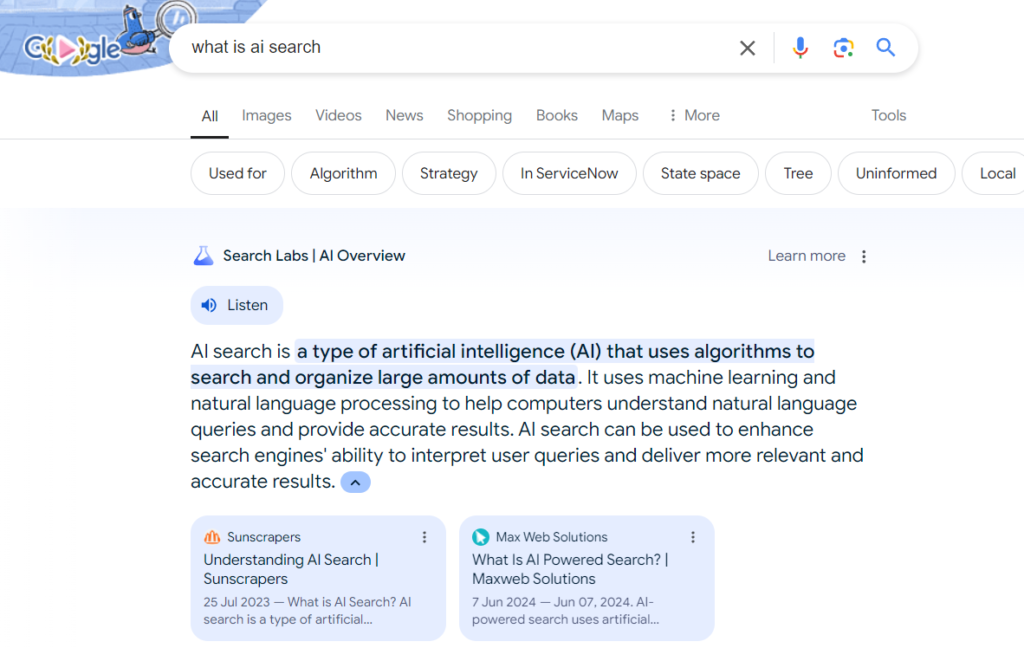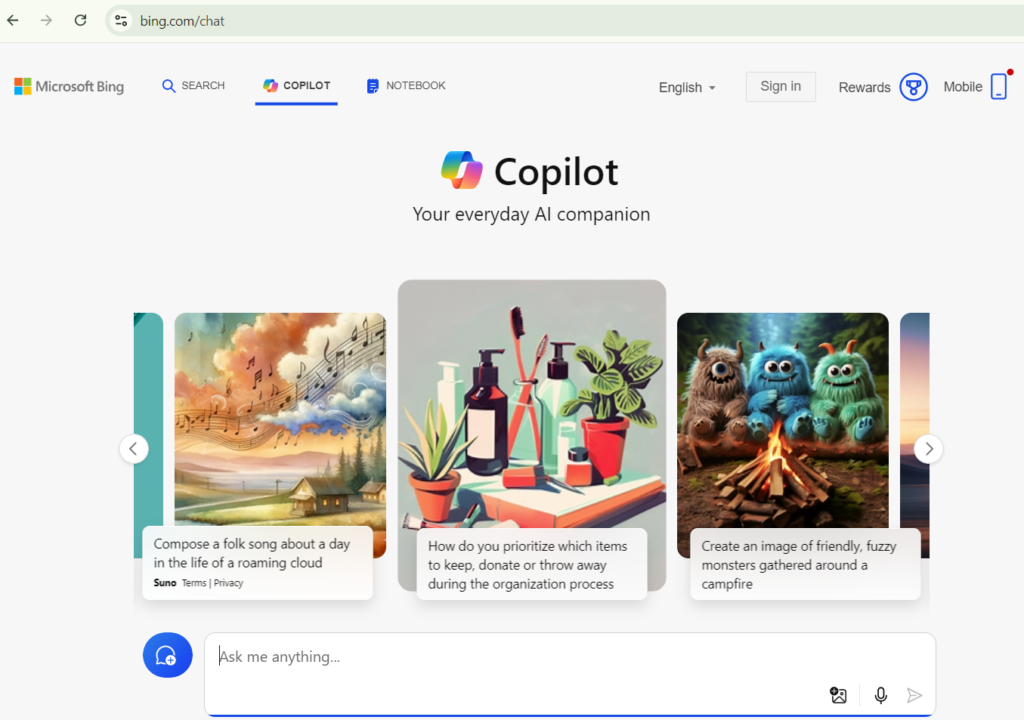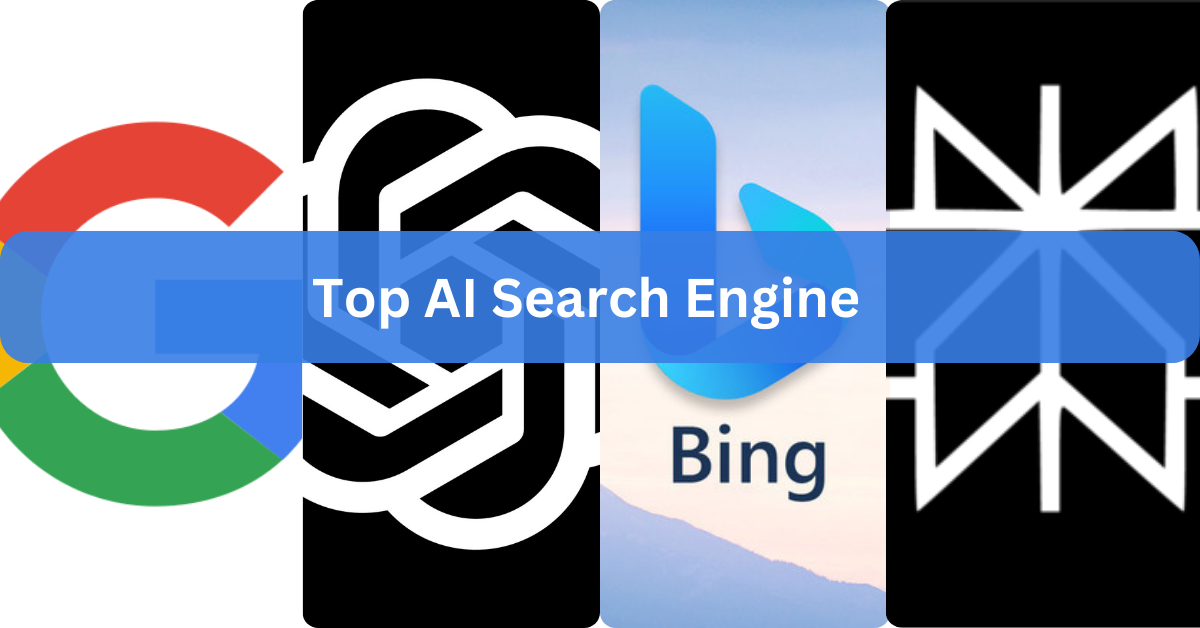The search landscape is undergoing a dramatic transformation, with artificial intelligence (AI) at the forefront. While Google continues to dominate, a new breed of AI-powered search engines is emerging, promising to redefine how we find information online. This article explores the key players challenging Google’s supremacy, including OpenAI’s groundbreaking SearchGPT prototype, and the future of search.
AI Search: A New Era of Information Discovery
Traditional search engines rely heavily on keywords and algorithms to deliver results. In contrast, AI search engines leverage advanced language models to understand user intent, provide more relevant information, and offer a more interactive experience.
Top Contenders in the AI Search Arena

This innovative platform stands out with its conversational approach. Instead of presenting a list of links, Perplexity engages in dialogue, asking clarifying questions to understand user needs better. Its AI-powered responses provide a more human-like and informative search experience.
-
Google AI Search Experiments:

While Google is the incumbent, the tech giant is actively exploring AI-driven search advancements. Their experiments, such as multimodal search, combine text and images to provide a richer search experience.

Microsoft’s partnership with OpenAI has breathed new life into Bing. By integrating ChatGPT, Bing offers a more interactive search experience, allowing users to ask follow-up questions and refine their search in a conversational manner.

Joining the race is OpenAI’s SearchGPT, a promising new prototype designed to offer fast, relevant answers with clear sources. This prototype leverages AI to highlight high-quality content and allows users to ask follow-up questions, fostering a conversational search experience.
The Future of Search: A Human-Centric Approach
The future of search is undoubtedly AI-driven. As technology progresses, we can expect even more sophisticated search engines that understand our needs intuitively. The focus will shift from simply providing information to delivering personalized insights and recommendations.
Key trends shaping the future of search:
- Natural language processing: Enabling seamless communication between humans and search engines.
- Visual search: Expanding search capabilities beyond text to include images and videos.
- Voice search: Making search more accessible and convenient.
- Personalization: Tailoring search results to individual preferences and behavior.
While competition is heating up, the ultimate winners will be the users who benefit from more relevant, informative, and engaging search experiences.
The Impact of AI on Search: A Focus on User Experience
The evolution of search is being fundamentally reshaped by artificial intelligence. Beyond merely delivering results, AI-powered search engines are prioritizing user experience, aiming to understand and anticipate user needs more effectively.
Understanding User Intent: The Cornerstone of AI Search
A key differentiator of AI search engines is their ability to accurately comprehend user intent. By analyzing search queries, user behavior, and contextual information, these platforms strive to deliver highly relevant results. This is achieved through:
- Natural language processing (NLP): Breaking down complex queries into understandable components.
- Semantic search: Understanding the underlying meaning and context of search terms.
- Personalization: Tailoring results based on individual preferences and search history.
Enhancing Search Experience Through AI
AI is transforming the way we interact with search engines. Beyond delivering accurate results, AI is being used to:
- Provide informative and concise answers: Directly addressing user queries without requiring multiple clicks.
- Offer visual search capabilities: Allowing users to search using images or videos.
- Enable voice search: Making search more accessible and hands-free.
- Create interactive search experiences: Engaging users through features like chatbots and virtual assistants.
Challenges and Opportunities
While AI holds immense potential for improving search, challenges remain. Ensuring data privacy, mitigating biases in search results, and maintaining the quality of information are critical concerns. However, the opportunities for innovation are vast.
AI-powered search engines have the potential to revolutionize industries by providing users with more efficient, informative, and personalized search experiences. As technology continues to advance, we can expect to see even more sophisticated AI search solutions emerge, transforming the way we access and consume information.

